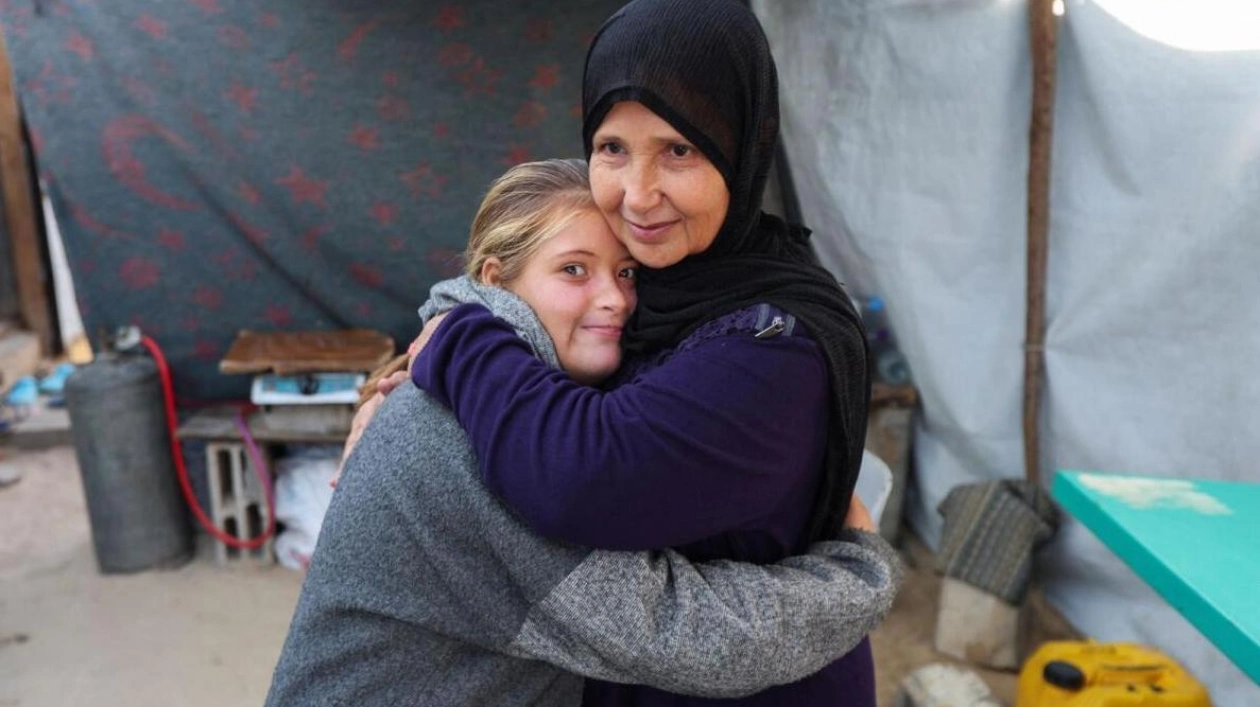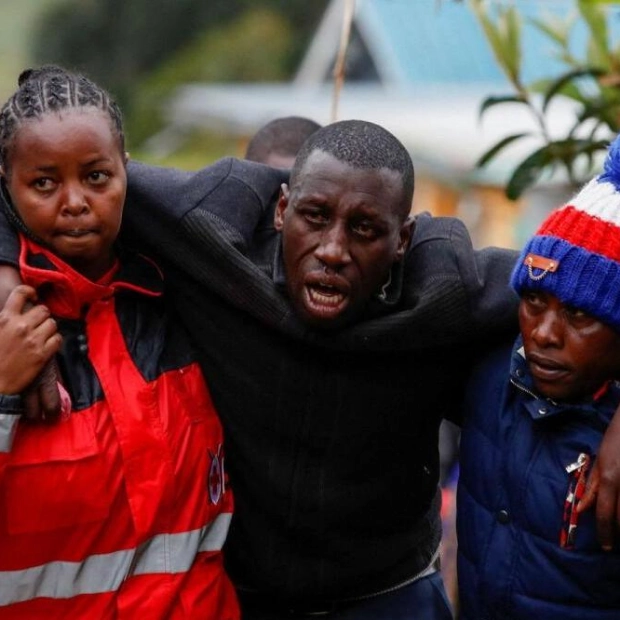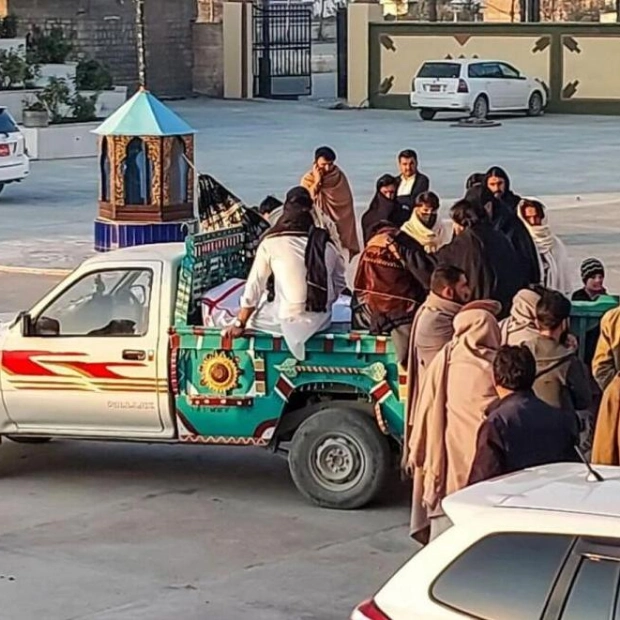Samira Tamous embraces her daughter Dounia, who is dressed in garments sewn from a blanket, as clothing shortages persist at a tent camp in the Al Mawasi area of Khan Younis in the southern Gaza Strip on October 27, 2024. — Reuters
As Gaza prepares for a harsh, wet winter, displaced Palestinians residing in tents and improvised shelters along the coast are crafting garments from blankets in a bid to keep warm. Nidaa Attia, 31, and fellow residents measure, cut, and sew the clothing in a tent close to the beach in Al Mawasi, Khan Younis, in the southern Gaza Strip. The process is entirely manual and labor-intensive, with electricity scarce; they generate power using a bicycle's pedals connected by a belt to their sewing machine.
"Winter is approaching for the second time since the war began, and people are without any warm clothing," Attia remarked.
A Palestinian woman measures a displaced child to fashion winter clothes from blankets at a tent in Khan Younis in the southern Gaza Strip on October 26, 2024. — Reuters
Nearby, a young child stood on a table while another woman measured him for a jumper to shield him from the winter chill. "There are no clothes entering the Gaza Strip, so we pondered how to address the fabric shortage and decided to recycle thermal blankets into winter garments," Attia explained.
Her "Needle and Thread" initiative, launched in September, predominantly relies on volunteers, though some receive a modest payment. The clothes are priced between 70 and 120 shekels ($18-$30), with discounts for those who provide blankets. A Gazan winter can be severe, characterized by low temperatures and strong winds. Last year, heavy rains flooded some shelters.
After over a year of war, many in Gaza lack income. Some have resorted to selling their belongings, including second-hand clothes, but few can afford even basic goods. International aid to Gaza has plunged to its lowest level this year, according to UN data, while a global hunger monitor has cautioned of an impending famine.
Most of Gaza's approximately two million residents have been displaced by Israel's unrelenting assault on the coastal region. "We have been displaced for over a year. We endured one winter and now another is approaching," said Samira Tamous, originally from Gaza City in the north but now living in a makeshift shelter in Al Mawasi.
"There are no winter clothes available, neither in the market nor to clothe my daughter," said Tamous, whose 13-year-old child with Down syndrome was wearing garments made under the "Needle and Thread" project. The Israeli offensive in Gaza was sparked by a Hamas-led attack on Israel on October 7, 2023, which killed 1,200 people and saw around 250 taken as hostages into the Palestinian territory, according to Israeli officials. The overall death toll in Gaza is nearing 43,000, according to the enclave's health ministry.
Source link: https://www.khaleejtimes.com






